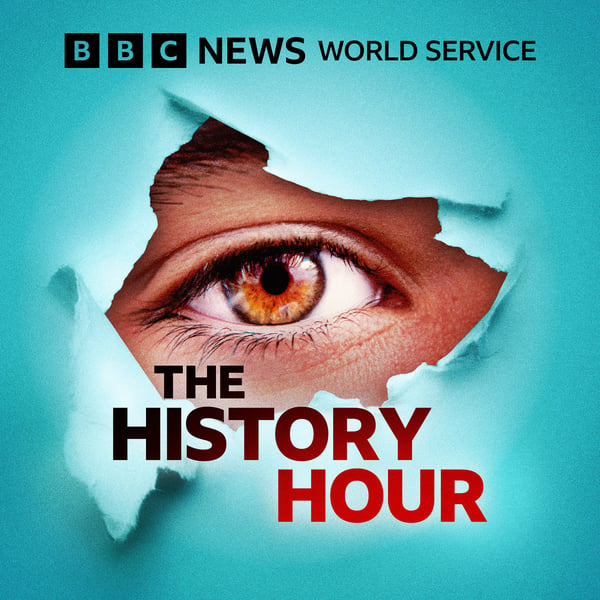Indonesian history
The History Hour
BBC
4.4 • 879 Ratings
🗓️ 15 August 2025
⏱️ 50 minutes
🧾️ Download transcript
Summary
Max Pearson presents a collection of the week’s Witness History interviews from the BBC World Service.
Our guest is Dr Anne-Lot Hoek, a research fellow at the International Institution of Social History in Amsterdam.
This week, we’re looking at key moments in Indonesian history, as the country marks 80 years since independence.
We start by hearing about the writer Pramoedya Ananta Toer, who wrote Buru Quartet while imprisoned in the notorious labour camp on Buru island.
Then, the reopening of the worlds’ largest Buddhist monument after major restoration work.
Plus, 50 years since the Santa Cruz massacre, when Indonesian troops opened fire on independence activists.
Also, Jakarta’s ban on the use of dancing monkeys on the city’s streets. And, the discovery of a new species of human.
Contributors:
Pramoedya Ananta Toer - archive recordings of the writer.
Werdi – one of the workers on the project.
Dr Anne-Lot Hoek - research fellow at the International Institution of Social History in Amsterdam.
Max Stahl - archive recordings of the British cameraman.
Femke den Haas – animal rights activist.
Peter Brown - Australian paleoanthropologist.
(Photo: Pramoedya Ananta Toer. Credit: Reuters)
Transcript
Click on a timestamp to play from that location
| 0:00.0 | Hello and welcome to The History Hour from the BBC World Service with me, Max Pearson, the past brought to life by those who were there. |
| 0:12.0 | This week, all our stories come from Indonesia, marking 80 years since independence. We'll be looking at that independence movement when Dutch rule was brought to an end in the middle of the last century. |
| 0:23.1 | Also East Timor's struggle for independence from Indonesia. Plus the restoration of the world's largest Buddhist monument. |
| 0:31.0 | We also look at Jakarta's ban on the use of dancing monkeys. |
| 0:34.4 | This is where you can really see an individual that was really broken, stress. |
| 0:40.2 | Yeah, you can just read in its eyes the fear and the trauma that it's being through. |
| 0:45.2 | And the small skeletal remains discovered on an Indonesian island that came to be known as the Hobbit. |
| 0:51.1 | Hi Marectis, this large, bodied human relative, had somehow got the floor as. |
| 0:56.2 | Could not have walked, had to use watercraft too far to swim, and through time its body |
| 1:00.9 | size had reduced. |
| 1:02.4 | But first, a writer who has come to symbolise Indonesia's resistance to oppression. |
| 1:08.2 | Pramodia Ananta Tours' life and work spanned the years covering the end of Dutch |
| 1:12.7 | colonial rule and the anti-communist right-wing dictatorship of President Suharto. Being a writer with |
| 1:19.6 | communist leanings, he suffered under both. In 1969, he was jailed without trial and spent 10 |
| 1:26.1 | years on a brutal prison island. |
| 1:28.3 | Jill Kursde has been learning more about his remarkable life and work. |
| 1:36.3 | I want the cultural ceiling to rise as opposed to fall, and for humanism to be understood better to gain a better |
| 1:46.6 | understanding of justice and truth that's why for me writing is not only a personal endeavor but a |
| 1:53.0 | national one too i don't write works for entertainment those are the words a promodea an |
| 1:58.9 | mentor tour as this program is made from BBC Archive over the years, |
| 2:03.7 | you'll hear different voices reading his words, |
| 2:06.5 | but the message remains just as powerful and distinctly his. |
... |
Please login to see the full transcript.
Disclaimer: The podcast and artwork embedded on this page are from BBC, and are the property of its owner and not affiliated with or endorsed by Tapesearch.
Generated transcripts are the property of BBC and are distributed freely under the Fair Use doctrine. Transcripts generated by Tapesearch are not guaranteed to be accurate.
Copyright © Tapesearch 2025.

